


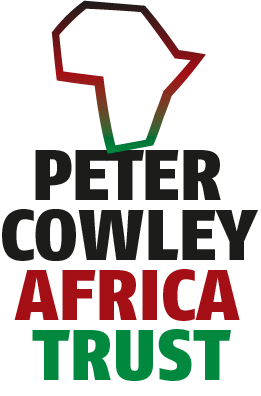
It is important for families relying on subsistence farming to find ways to generate additional cash income to help meet household expenses and meet costs such as health care and education. PCAT is working with its partners agencies to develop small-scale and appropriate ways to support local families to diversify their incomes.
Grants from PCAT have included providing breeding goats to increase milk yield and small grants to a number of local self-help groups for the purchase of chickens both for breeding and for egg production.
In 2011 PCAT gave a grant to Kisesini self-help groups for 16,000 sisal plants for five women’s groups who are members of Machakos District Co-operative Union. The sisal will be used to make sacks as well as baskets. Sales of the baskets (called kiondos) provides additional income for families whose only other source of income is subsistence farming. More recently in 2018 a grant was given for equipment used for dyeing the sisal.
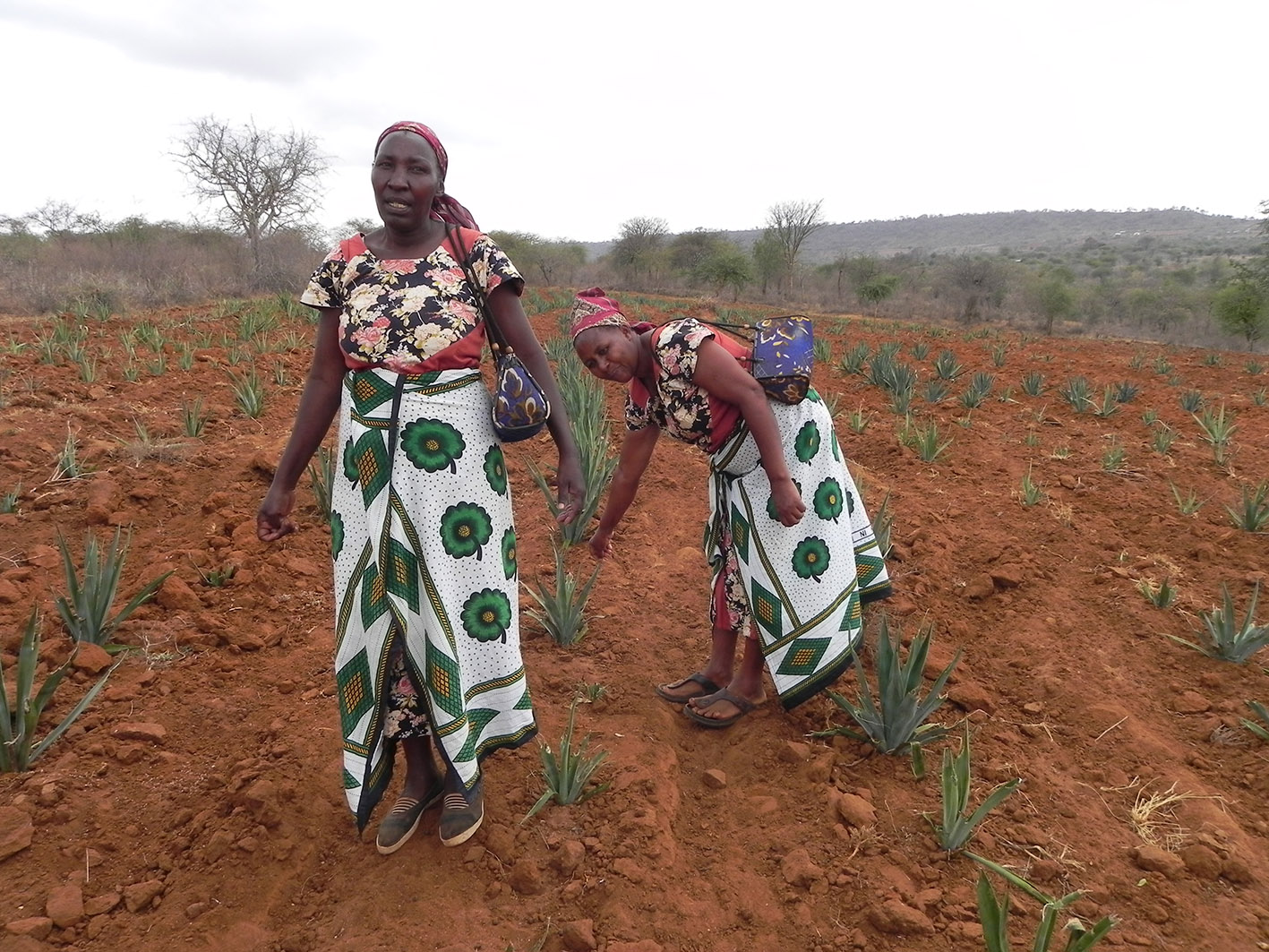
Kisesini sisal planting project 2011.
PCAT has provided a number of grants to develop a bee-keeping project, working with a number of women’s groups in Machakos County. The aim of the project is to develop local honey production, the sale of which will increase incomes for the women involved. This project has been developed by MCU in liaison with the Agriculture Department. Grants have included the provision of beehives and protective suits for the women when harvesting the honey.
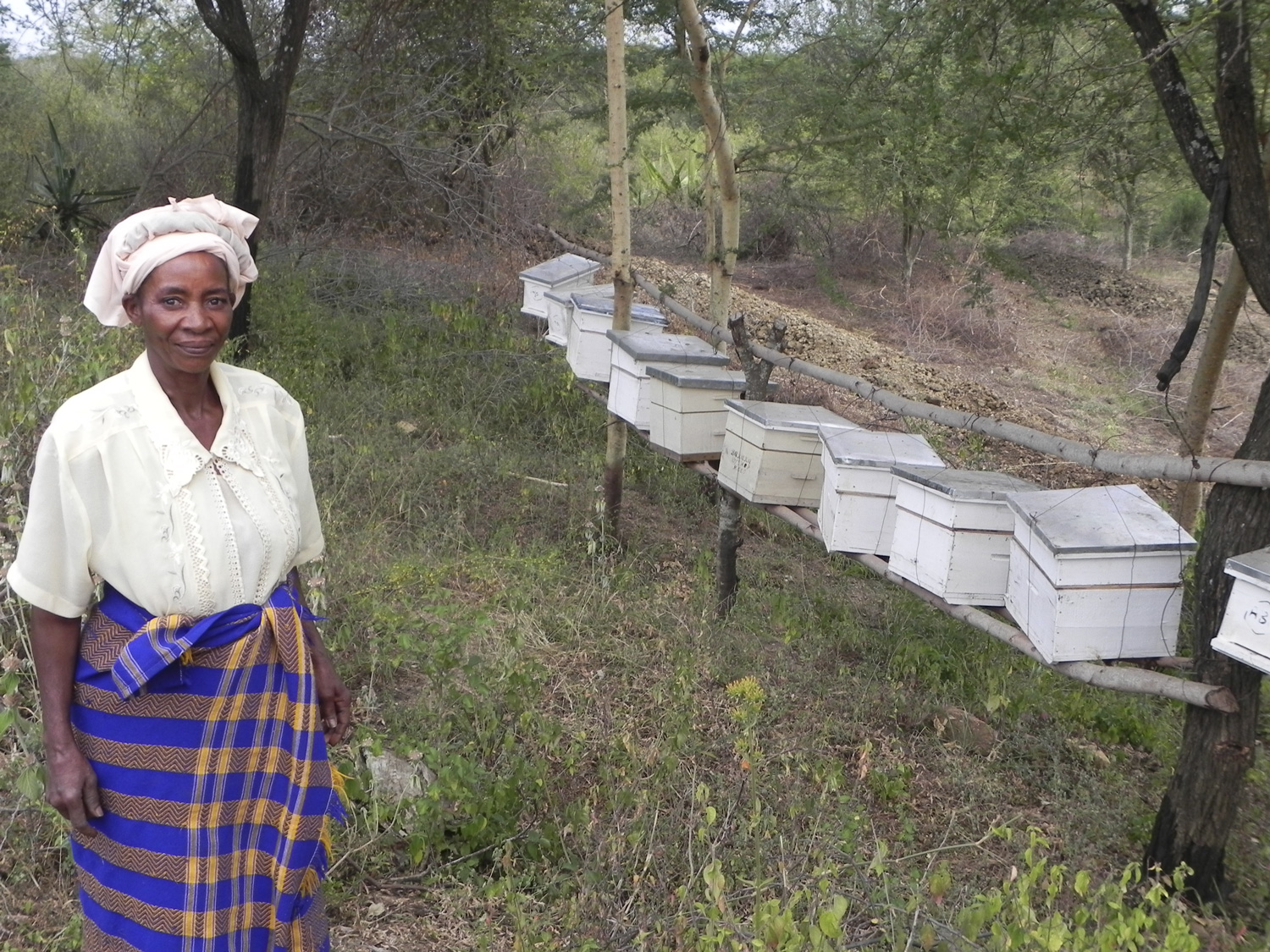
Beehives supplied to Kamakya Self-Help Group.
In 2015 PCAT provided a grant to meet the cost of training women’s groups involved with the bee-keeping project. The grant was used to provide training with regard to the production, processing and storage of honey. The training has been developed in partnership with a technical team from Machakos County with expertise in bee-keeping and honey production. Over 3,000 women benefitted from the training.
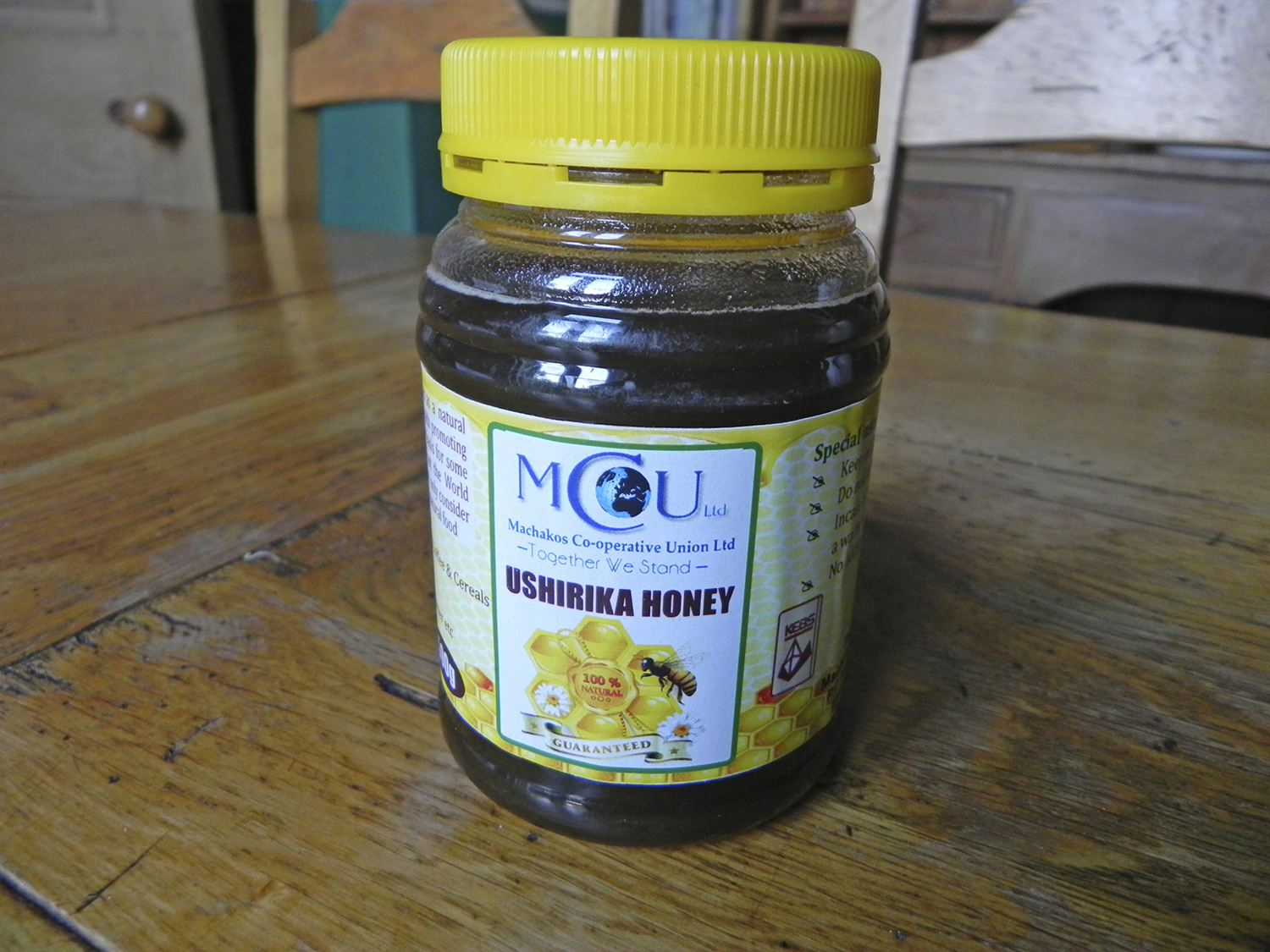
A jar of honey produced by the Machakos Co-operative Union.
A grant to Mathima self-help group towards the cost of constructing a commercial greenhouse. The greenhouse is irrigated using micro-irrigation techniques by water pumped from the Mathima Dam and is used to grow tomatoes, peppers and other crops for sale. The project benefits 30 households comprising over 200 people.
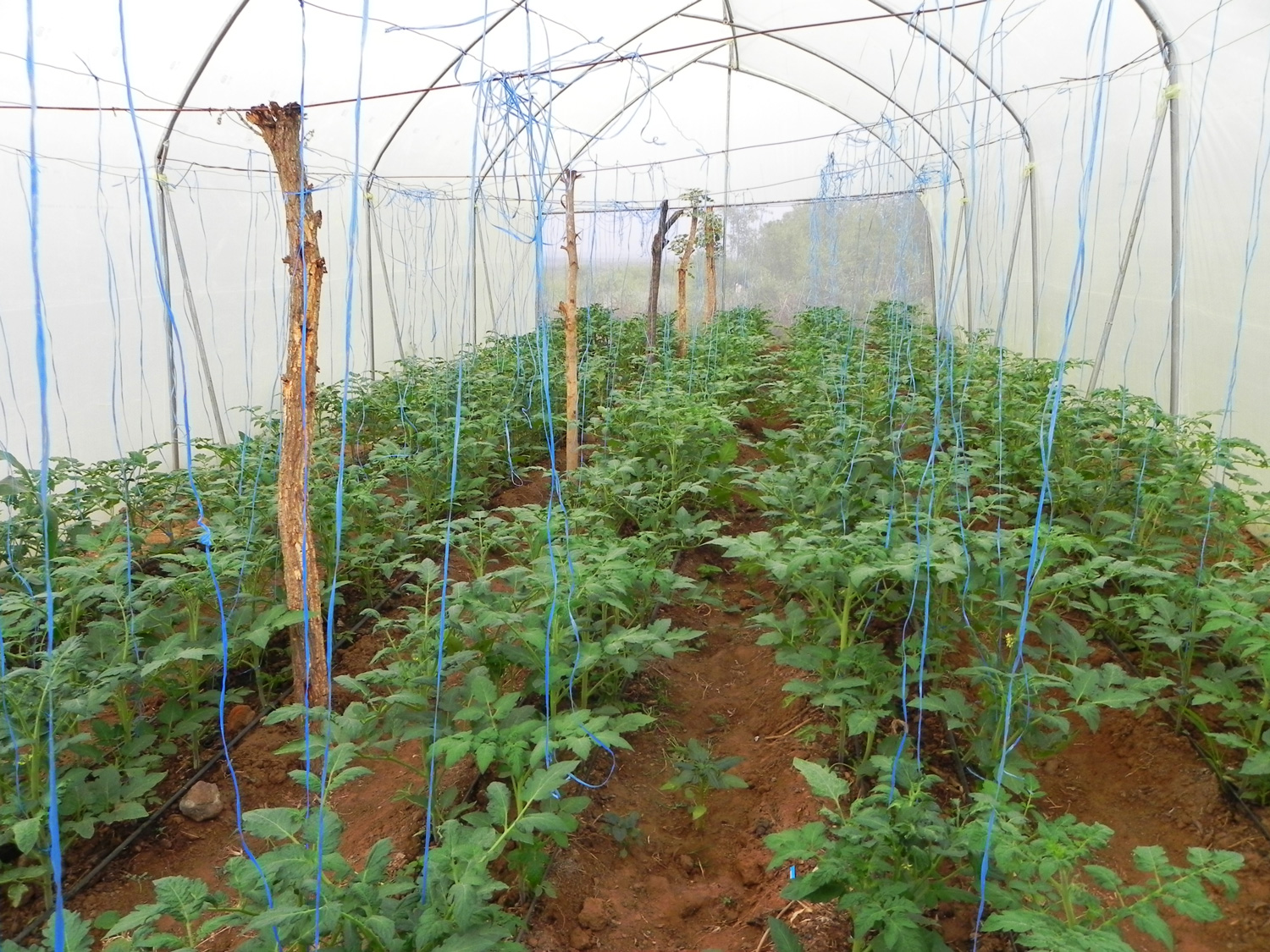
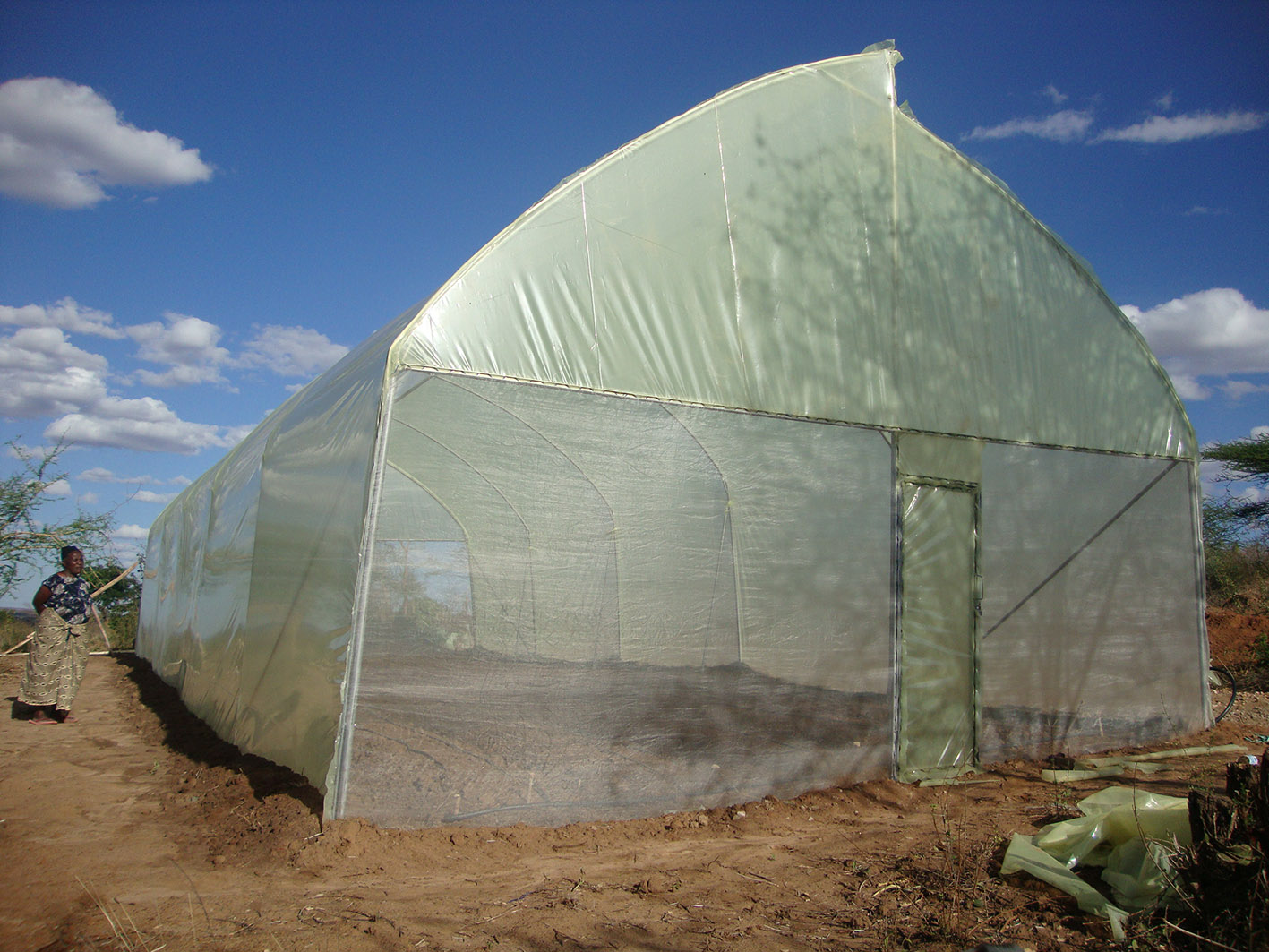
Mathima greenhouse project 2012 – inside and out!
The Trust has begun developing projects in partnership with the Little Sisters of Francis in the Kasarani district of Nairobi, supporting marginalised women in the local area and specifically the members of the Joy Women’s Group who earn money sorting and recycling rubbish on a local rubbish tip. In 2015 PCAT provided a grant to develop a poultry rearing project and a further grant in 2018 to provide chickens to supply eggs both for the women’s families and for sale to generate additional income.
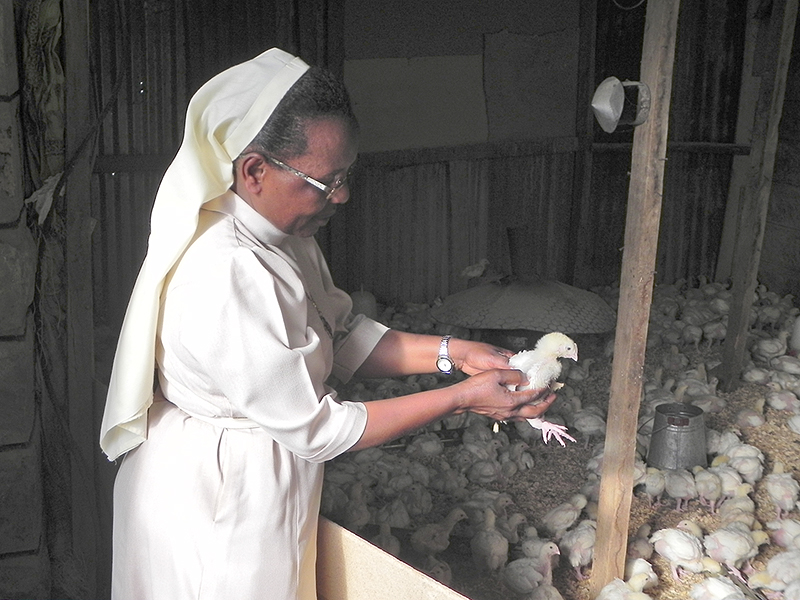
Sister Clare Malila with the poultry project.
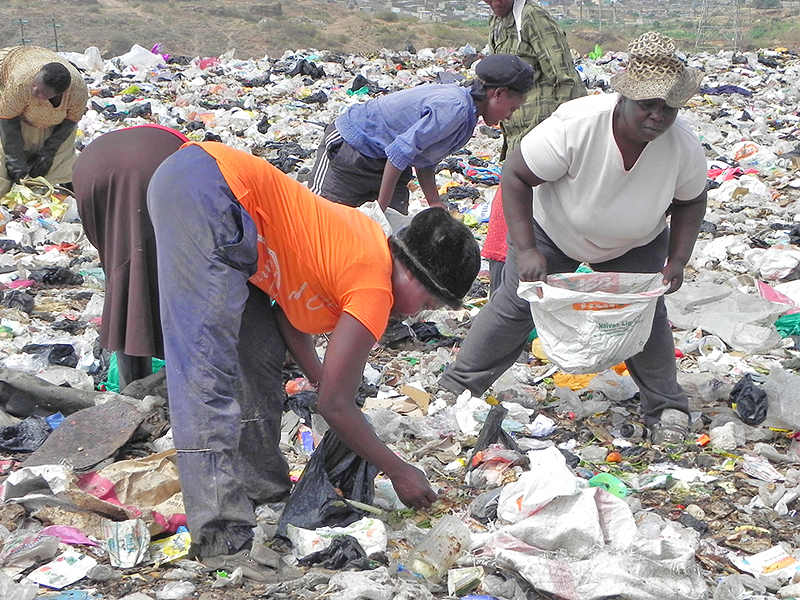
Members of the Joy Women’s Group working on a rubbish dump in Kasarani.
Another grant has been provided to the Joy Women’s Group to develop a pig rearing project. Each member of the group was provided with two pigs for breeding. Members of the group will use the additional income gained from selling any young pigs to meet essential daily living costs and the cost of school fees.
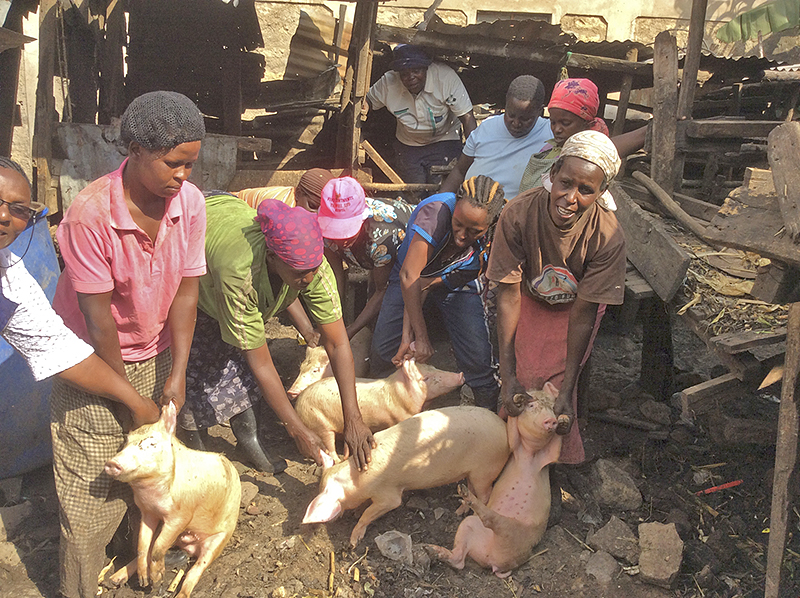
Purchase of breeding pigs for the Joy Women’s group.
In 2016 in response to a request from the Little Sisters PCAT provided a grant to set up a loan fund managed by the Little Sisters. Members of women’s groups that the Little Sisters work with (including refugee groups and single parents) can apply to the fund for loans to help establish micro-enterprises. For example, one woman has taken out a small loan to successfully develop her kiosk selling refreshments to local workers.

A beneficiary whose kiosk selling refreshments to local workers was improved with a microfinance loan from the Little Sisters.
Over the last two years PCAT has also developed a partnership with Moko Sacco, a savings and credit union in Machakos. PCAT has provided a total of £20,000 as a loan fund, enabling Moko Sacco’s members to borrow funds at a a low rate of interest. Recent loans have been provided to Moko Sacco’s members for the purchase of water tanks and solar powered lamps.
Ldyia Mwikya is one of the members of Moko Sacco who has been able to borrow from PCAT’s funding. Lydia is responsible for her family’s upkeep and also for paying for school fees for her grandchildren. Through the loans advanced by Moko Sacco at very affordable interest rates, she has managed to educate her children and access clean and safe water.
In 2017 she borrowed money from Moko Sacco to purchase a 10,000 litre water storage tank to store water during the rainy season. This has enabled to save a lot in terms of water, cost and time wasted in fetching water. It has also enabled her to irrigate a small plot for growing sukuma (greens) which she sells to the community thus improving her livelihood.
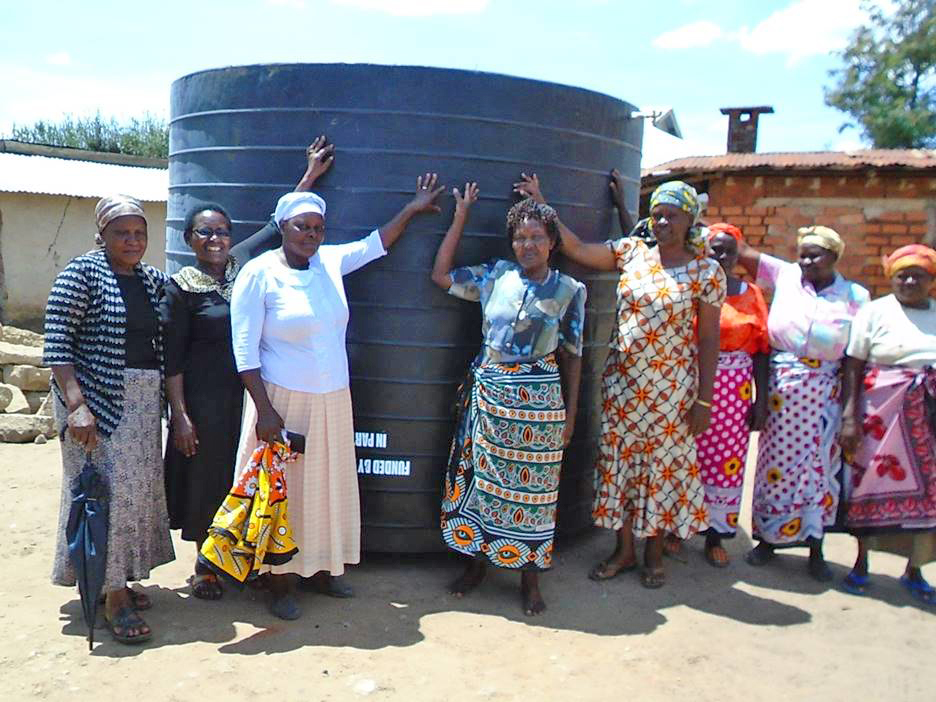
Ldyia Mwikya and the water tank she purchased with a low cost loan made available with PCAT funding.
The loan granted was kshs70,000.00 at an interest rate of 3% p.a which translates to kshs 2,100.00 per annum. Comparatively, other financial institutions charge 18% per annum which would have cost her kshs12,600.00.
Grants from PCAT have included providing breeding goats to increase milk yield and small grants to a number of local self-help groups for the purchase of chickens both for breeding and for egg production.
In 2011 PCAT gave a grant to Kisesini self-help groups for 16,000 sisal plants for five women’s groups who are members of Machakos District Co-operative Union. The sisal will be used to make sacks as well as baskets. Sales of the baskets (called kiondos) provides additional income for families whose only other source of income is subsistence farming. More recently in 2018 a grant was given for equipment used for dyeing the sisal.

Kisesini sisal planting project 2011.
PCAT has provided a number of grants to develop a bee-keeping project, working with a number of women’s groups in Machakos County. The aim of the project is to develop local honey production, the sale of which will increase incomes for the women involved. This project has been developed by MCU in liaison with the Agriculture Department. Grants have included the provision of beehives and protective suits for the women when harvesting the honey.

Beehives supplied to Kamakya Self-Help Group.
In 2015 PCAT provided a grant to meet the cost of training women’s groups involved with the bee-keeping project. The grant was used to provide training with regard to the production, processing and storage of honey. The training has been developed in partnership with a technical team from Machakos County with expertise in bee-keeping and honey production. Over 3,000 women benefitted from the training.

A jar of honey produced by the Machakos Co-operative Union.
A grant to Mathima self-help group towards the cost of constructing a commercial greenhouse. The greenhouse is irrigated using micro-irrigation techniques by water pumped from the Mathima Dam and is used to grow tomatoes, peppers and other crops for sale. The project benefits 30 households comprising over 200 people.


Mathima greenhouse project 2012 – inside and out!
The Trust has begun developing projects in partnership with the Little Sisters of Francis in the Kasarani district of Nairobi, supporting marginalised women in the local area. In 2015 PCAT provided a grant to develop a poultry rearing project. Income from the sale of the chicks helps to meet the cost of basic protective equipment for members of the Joy Women’s group who earn money sorting and recycling rubbish dumped on a local rubbish tip.

Sister Clare Malila with the poultry project.

Members of the Joy Women’s Group working on a rubbish dump in Kasarani.
Another grant has been provided to the Joy Women’s Group to develop a pig rearing project. Each member of the group was provided with two pigs for breeding. Members of the group will use the additional income gained from selling any young pigs to meet essential daily living costs and the cost of school fees.

Purchase of breeding pigs for the Joy Women’s group.
In 2016 in response to a request from the Little Sisters PCAT provided a grant to set up a loan fund managed by the Little Sisters. Members of women’s groups that the Little Sisters work with (including refugee groups and single parents) can apply to the fund for loans to help establish micro-enterprises. For example, one woman has taken out a small loan to successfully develop her kiosk selling refreshments to local workers.

A beneficiary whose kiosk selling refreshments to local workers was improved with a microfinance loan from the Little Sisters.
Over the last two years PCAT has also developed a partnership with Moko Sacco, a savings and credit union in Machakos. PCAT has provided a total of £20,000 as a loan fund, enabling Moko Sacco’s members to borrow funds at a a low rate of interest. Recent loans have been provided to Moko Sacco’s members for the purchase of water tanks and solar powered lamps.
Ldyia Mwikya is one of the members of Moko Sacco who has been able to borrow from PCAT’s funding. Lydia is responsible for her family’s upkeep and also for paying for school fees for her grandchildren. Through the loans advanced by Moko Sacco at very affordable interest rates, she has managed to educate her children and access clean and safe water.
In 2017 she borrowed money from Moko Sacco to purchase a 10,000 litre water storage tank to store water during the rainy season. This has enabled to save a lot in terms of water, cost and time wasted in fetching water. It has also enabled her to irrigate a small plot for growing sukuma (greens) which she sells to the community thus improving her livelihood.

Ldyia Mwikya and the water tank she purchased with a low cost loan made available with PCAT funding.
The loan granted was kshs70,000.00 at an interest rate of 3% p.a which translates to kshs 2,100.00 per annum. Comparatively, other financial institutions charge 18% per annum which would have cost her kshs12,600.00.
 PETER COWLEY AFRICA TRUST IS A REGISTERED CHARITY NO: 1037257
PETER COWLEY AFRICA TRUST IS A REGISTERED CHARITY NO: 1037257